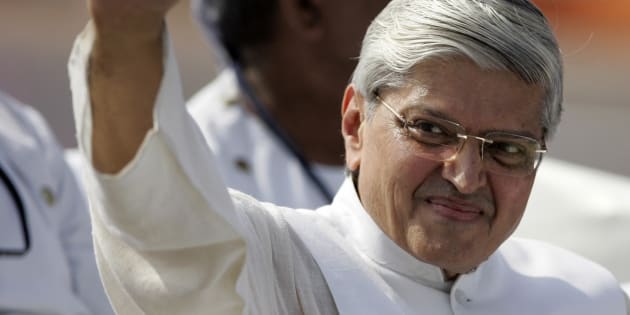
At the peak of the farmers' agitation in Bengal, then Governor Gopalkrishna Gandhi did not hesitate to take on the ruling Left government, that had an iron grip on the state for 30 years. He said the spiralling violence filled him with "cold horror", a statement that predictably earned the ire of the Left government. It's not unusual for a serving Governor to criticise the ruling government.
But Gopalkrishna Gandhi's unambiguous stand on Nandigram in 2007 — "I cannot be so casual to the oath I have taken as to restrict reaction to a pious expression of anguish and outrage" — earned him the respect few governors get from a wide section of the political establishment. He is said to have regularly travelled to the countryside in Bengal incognito, and served quietly in rural Gujarat's earthquake relief work.
The grandson of Mahatma Gandhi, and a distinguished diplomat in his own right, Gopalkrishna Gandhi time and again spoke his mind about contentious issues, especially about transparency and ethics in politics. In 2014 he called the Central Bureau of Investigation (CBI) the "government's hatchet, rather than honesty's ally".
Gandhi is a popular Opposition choice as India's next Presidential candidate. The Hindustan Times reported that if the government asked the Opposition leaders, the Congress and the Left are most likely to suggest Gandhi's name.
The 71-year-old Gandhi has had a long and illustrious career and has held several prestigious positions. He was a diplomat — the High Commissioner of India to South Africa and Lesotho and then to Sri Lanka and the the Ambassador of India to Norway and Iceland — before he became the governor of West Bengal.
Reports say that his name was suggested for the Presidential poll by the Left as a secular candidate. And given his family's legacy — he is the grandson of Mahatma Gandhi on his paternal side, and India's last Governor General C Rajagopalachari on his mother's side — an acceptable option for the Congress too.
Gandhi has meanwhile confirmed that he was approached by Opposition parties, even as the Left is lobbying for him.
"Yes, I have been spoken to. But the conversations have been of a very preliminary nature. It would not be right for me to say anything beyond that," Gandhi told The Indian Express.
There are other names from the Opposition that have been doing the rounds too – former Lok Sabha speaker Meira Kumar, JD(U) chief Sharad Yadav and NCP leader Sharad Pawar.
The Indian Express also reported that Mamata Banerjee is also on the same page with other parties about Gandhi. She had earlier backed Gandhi, in 2012, as the vice-presidential candidate.
But will Gandhi find support from the BJP whose chief whip called his grandfather 'a chatur baniya' ?
Away from the public eye, Gandhi is right now a professor at the Ashoka University. But he hasn't been shy of writing columns on, or giving speeches about the current scenario in the country.
In a 2015 interview to India Today he criticised incidents of mob lynchings in the name of gau raksha saying,"I would like to assure that Akhlaq's death will not go in vain, his death will remind us that violence cannot achieve anything."
Gandhi had also criticised muscular and aggressive nationalistic politics. "Who rules India? I will not mention the name of a person. I shouldn't say who. I should say what. Fear rules India. How does fear manifest itself? Why is the lokpal still dangling in mid-air? Why is the whistleblower's protection Act not yet notified? There is a kind of fear to face reality in our legislatures, not just Parliament, but in our State legislatures too," The Hindu had quoted him as saying.
In interview to Scroll, Gandhi said, "There is a sense of anxiety over rising intolerance and a sense of fear over the government not stopping or condemning acts of intolerance. The rise in intolerance and fear of the immunity that intolerance seems to enjoy are intimately connected."
On the issue of renaming roads, Gandhi recently wrote that the move was more about imposing Hindutva than honouring a person's contribution to India's politics and culture. He added, very optimistically, that "cultural demagoguery, political roguery and emotional thuggery" cannot bamboozle the people of India.
"Today's rulers, in their mundane seat of brief office can never, howsoever hard they may try, ever hope to erase the shape of Hindustan from the name and style India that is Bharat," he wrote.
While there is no doubt that his liberal and erudite views would make for a good president, they would also probably one of the biggest reasons that would stand in the way given the present atmosphere in politics.
Also on HuffPost India